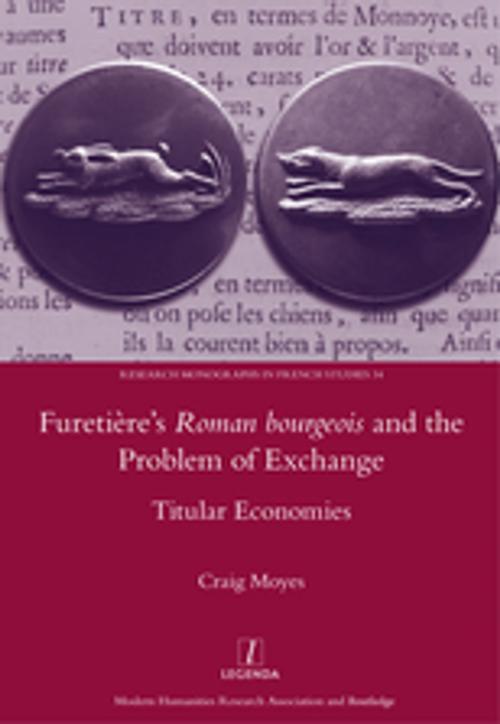Furetiere's Roman Bourgeois and the Problem of Exchange: Titular Economies
Fiction & Literature, Literary Theory & Criticism| Author: | Craig Moyes | ISBN: | 9781351192897 |
| Publisher: | Taylor and Francis | Publication: | December 2, 2017 |
| Imprint: | Routledge | Language: | English |
| Author: | Craig Moyes |
| ISBN: | 9781351192897 |
| Publisher: | Taylor and Francis |
| Publication: | December 2, 2017 |
| Imprint: | Routledge |
| Language: | English |
"'If Furetiere (1619-1688) hadn't been friends with Racine and Boileau, if he hadn't been famous for his Dictionary and for his battle with the Academie Francaise, it is unlikely that we would still be speaking of the Roman bourgeois (1666). Its qualities are decidedly few. One cannot even say in its favour that it bears witness to a period and a moment in our literary history.' So writes Antoine Adam in his magisterial history of 17th-century French literature. But whatever one might feel about the aesthetic value of the Roman bourgeois - and following Adam it is usually classified as a precocious though failed example of narrative realism, sadly out of step with the classicism of its time - can we really say that it bears no witness to its period? Craig Moyes shows on the contrary how, within the disarticulated narrative of the Roman bourgeois, Furetiere - the titular abbot, the sitting academician, the secret lexicographer, the experimental novelist - was uniquely placed to explore a changing literary economy marked most spectacularly by the trial of Nicolas Fouquet (1661-1664), the decline of aristocratic largesse, and the subsequent centralization of artistic patronage around the personal reign of Louis XIV and the new administration of Colbert."
"'If Furetiere (1619-1688) hadn't been friends with Racine and Boileau, if he hadn't been famous for his Dictionary and for his battle with the Academie Francaise, it is unlikely that we would still be speaking of the Roman bourgeois (1666). Its qualities are decidedly few. One cannot even say in its favour that it bears witness to a period and a moment in our literary history.' So writes Antoine Adam in his magisterial history of 17th-century French literature. But whatever one might feel about the aesthetic value of the Roman bourgeois - and following Adam it is usually classified as a precocious though failed example of narrative realism, sadly out of step with the classicism of its time - can we really say that it bears no witness to its period? Craig Moyes shows on the contrary how, within the disarticulated narrative of the Roman bourgeois, Furetiere - the titular abbot, the sitting academician, the secret lexicographer, the experimental novelist - was uniquely placed to explore a changing literary economy marked most spectacularly by the trial of Nicolas Fouquet (1661-1664), the decline of aristocratic largesse, and the subsequent centralization of artistic patronage around the personal reign of Louis XIV and the new administration of Colbert."















